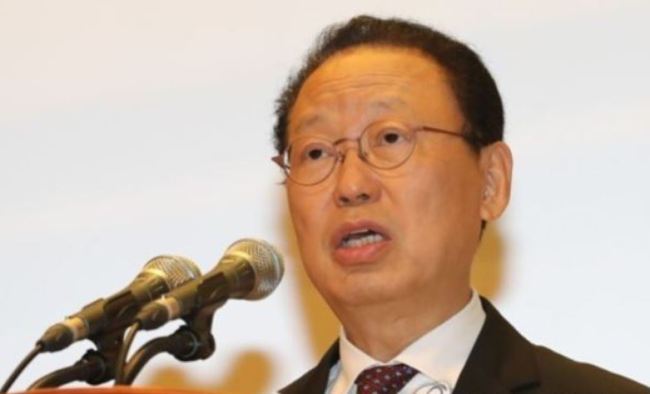Financial market stable during long Chuseok holiday: regulator
By YonhapPublished : Oct. 9, 2017 - 18:06
South Korea's financial market remained stable during the 10-day Chuseok holiday despite concerns surrounding North Korean provocations, state regulators said Monday.
The Financial Supervisory Service said after a market review meeting that the country's credit default swaps premium stood at 69.9 basis points as of Friday, down from 73.8 bp on Sept. 29, just before the start of the holiday. CDS reflects the cost of hedging credit risk on sovereign debt with a rise implying a deterioration in the credit of government bonds and a higher cost of insurance.
It added that the Korean won-US dollar exchange rate in the non-deliverable forward market moved from 1,146.0 won to 1,144.9 won during the same period, showing signs of stability.
The Financial Supervisory Service said after a market review meeting that the country's credit default swaps premium stood at 69.9 basis points as of Friday, down from 73.8 bp on Sept. 29, just before the start of the holiday. CDS reflects the cost of hedging credit risk on sovereign debt with a rise implying a deterioration in the credit of government bonds and a higher cost of insurance.
It added that the Korean won-US dollar exchange rate in the non-deliverable forward market moved from 1,146.0 won to 1,144.9 won during the same period, showing signs of stability.

FSS chief Choe Heung-sik said that while the local bourse experienced some volatility ahead of the holiday with foreign investors offloading shares, expectations of solid third quarter earnings and general strength of overseas markets should help ease jitters.
"There is a growing sense that the market will calm down once it opens after the long break," the official said.
This year's Chuseok is the longest in decades due to it being preceded and followed by two other national holidays and two weekends.
Others said that liquidity coverage ratio, another sign of market stability, stood at 108.9 percent for regular retail banks and 80.4 percent for specialized lenders, with both exceeding the 60 percent and 40 percent limit imposed by the state.
They added that the average spread for foreign currency denominated debt borrowing stood at 0.9 bp for short term loans and 45.5 bp for long duration borrowing, which can all be seen as stable.
On the other hand, policymakers said potential provocations by North Korea this month and further scaling back of monetary easing policy by the US Federal Reserve Board could pose challenges. (Yonhap)








![[Kim Seong-kon] Democracy and the future of South Korea](http://res.heraldm.com/phpwas/restmb_idxmake.php?idx=644&simg=/content/image/2024/04/16/20240416050802_0.jpg&u=)








![[KH Explains] Hyundai's full hybrid edge to pay off amid slow transition to pure EVs](http://res.heraldm.com/phpwas/restmb_idxmake.php?idx=652&simg=/content/image/2024/04/18/20240418050645_0.jpg&u=20240418181020)

![[Today’s K-pop] Zico drops snippet of collaboration with Jennie](http://res.heraldm.com/phpwas/restmb_idxmake.php?idx=642&simg=/content/image/2024/04/18/20240418050702_0.jpg&u=)